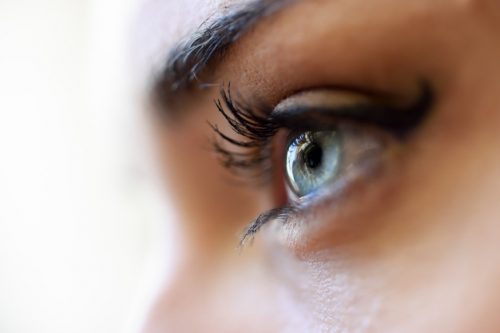One of the facts of life you will probably have to face as you age is declining vision.
It’s rare that anyone gets to keep the perfect vision they once had in their younger years as they age into their senior years.
Some forms of vision impairment due to aging are more common, while others can be prevented or delayed depending on lifestyle habits.
Even if you do develop age-related vision impairment in your later years, an ophthalmologist can help you determine, which, if any vision correction surgeries can restore or improve your sight.
What Vision Impairments are Caused by Aging?
Cataracts: By the age of 80, nearly half of all seniors in the United States have developed cataracts to some extent.
A cataract is essentially a cloud that forms in the lens of the eye, preventing light from entering and therefore impairing vision.
Because cataracts develop very gradually, many people aren’t aware that they have them unless they get their eyes checked regularly by an eye doctor.
Macular Degeneration: Also one of the most common vision impairments in the elderly, macular degeneration affects the retina of the eye.
This eye disease is typically seen in individuals after the age of 45. Like cataracts, vision loss from macular degeneration is also gradual, and is typically diagnosed by an eye doctor through regular visits.
How Can You Prevent Premature Vision Loss?
Regular Check Ups
It’s better to catch vision problems before time allows them to get worse. Scheduling an eye appointment every 12 months is a good habit to get in to, especially for those older than 40.
Early diagnosis and treatment of any eye disease symptoms can help prolong your vision for much longer than if left untreated for long periods of time.
Protect Your Eyes From the Sun
Everyone should be conscious of how exposed their eyes are to the sun. Even if you already wear glasses or contacts, protecting your eyes from the sun’s harmful UV rays is an essential part of preserving your vision as you age. Make sure you always have a pair of sunglasses on hand.
Eat a Balanced Diet
While there is a lot of speculation about particular foods that can improve eyesight, a general rule of thumb is to ensure that overall, your diet is providing you with all of the necessary vitamins, minerals, and antioxidants.
Foods that benefit your body will also benefit your eyes, especially vitamins C, A and E.
Correcting Vision with Surgery
Cataract surgery has improved immensely over the past several decades – what used to be extremely painful and require and lengthy recovery period now can be completed in a matter of minutes, involves little to no pain, and requires virtually no recovery period.
During a cataract procedure, the clouded lens of the eye is broken up with a laser, removed, and replaced with an artificial lens.
Depending on the design and quality of this artificial lens, some patients can experience perfect or near-perfect vision for the rest of their life with no need for glasses or contacts.
Surgery for macular degeneration is also an option, though the results aren’t as successful as cataract surgery.
Laser surgery for macular degeneration is helpful in improving the condition and preventing it from worsening, however, surgery cannot usually reverse the effects of macular degeneration.
Don’t wait till it’s too late to start taking care of your eyes!




